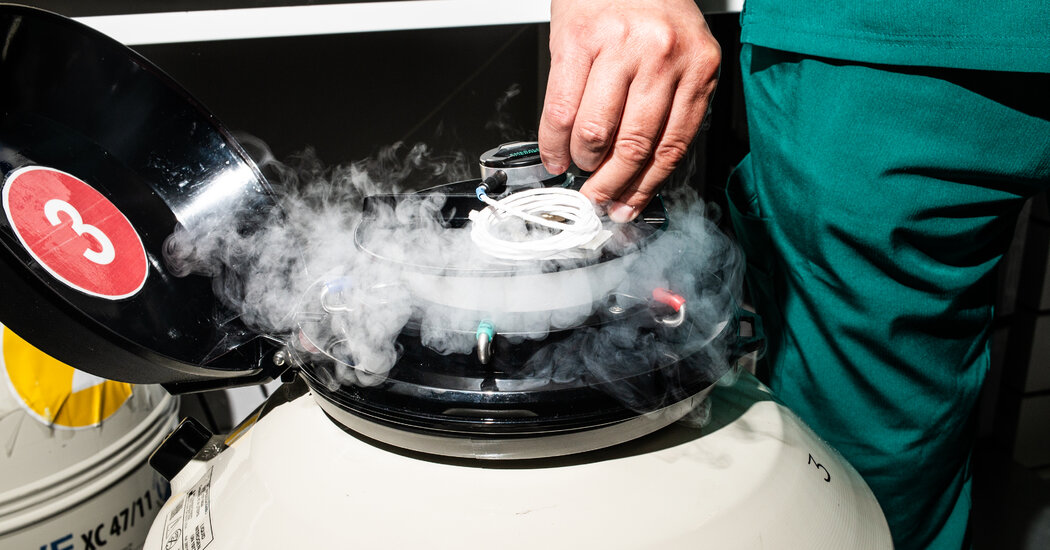I.V.F. Threats in Alabama Drive Clinics to Ship Out Embryos
An emerging movement against in vitro fertilization is driving some doctors and patients in red states to move or destroy frozen embryos.The embryo migration is most striking in Alabama, where the State Supreme Court ruled in February that embryos were “unborn children.” Since then, at least four of Alabama’s seven fertility clinics have hired biotech companies to move the cells elsewhere. A fifth clinic is working with a doctor in New York to discard embryos because of concerns about the legality of doing so in Alabama.Fertility patients outside of Alabama, too, are worried about how their precious embryos — specks of 70 to 200 cells barely visible to the human eye — might one day be affected by lawmakers who believe human life begins at conception. Since the Supreme Court’s 2022 decision to overturn Roe v. Wade, 14 states have passed total or near total abortion bans. And the Southern Baptists, the country’s largest Protestant denomination, voted in June to oppose I.V.F., calling for the protection of “frozen embryonic human beings.”That month in Texas, Diana Zucknick spent $1,550 to send a tank of liquid nitrogen holding five of her embryos to New York for safekeeping. In South Dakota, Jennifer Zabel destroyed two embryos because she feared the state would take control of them. And in Mississippi, Dr. Preston Parry said more of his fertility patients were choosing to make fewer embryos at a time, prolonging the typical I.V.F. process in order to minimize leftover embryos.While there is no official tally of the number of frozen embryos in the United States, experts estimate it’s in the millions. And many clinics are overwhelmed by a mounting inventory of cells that are sometimes years or even decades old.We are having trouble retrieving the article content.Please enable JavaScript in your browser settings.Thank you for your patience while we verify access. If you are in Reader mode please exit and log into your Times account, or subscribe for all of The Times.Thank you for your patience while we verify access.Already a subscriber? Log in.Want all of The Times? Subscribe.
Read more →

